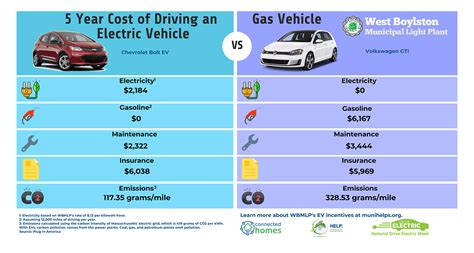In an era where environmental consciousness is rising, more and more drivers are considering hybrid cars as sustainable alternatives to traditional combustion engine vehicles. Not only do hybrid cars offer reduced fuel consumption and lower emissions, but they also come with various financial incentives and rebates that can significantly boost your savings. This article aims to guide you through maximizing your savings by unlocking available rebates for hybrid cars.
Understanding Hybrid Cars
Hybrid cars combine an internal combustion engine with an electric motor to improve fuel efficiency and reduce emissions. There are primarily three types of hybrid vehicles:
- Parallel hybrids: Both the engine and electric motor can power the vehicle, often working in tandem.
- Series hybrids: The vehicle is primarily powered by an electric motor, while the gasoline engine acts as a generator for the electric motor.
- Plug-in hybrids: These vehicles can be charged from an external source and typically offer a longer electric-only range.
By understanding these types, potential buyers can better assess their driving needs and determine which hybrid models might qualify for rebates.
Types of Rebates and Incentives
When it comes to hybrid cars, numerous rebates and incentives are available at both the federal and state levels. Here are some of the most common types:
1. Federal Tax Credit
The United States federal government offers a tax credit for qualifying hybrid and electric vehicles. The amount of the credit varies depending on the capacity of the vehicle’s battery. As of 2023, the federal tax credit can range from $2,500 to $7,500. To receive this credit, you must file IRS Form 8834 in conjunction with your tax return for the year you purchased your hybrid vehicle.
2. State and Local Incentives
Many states offer additional financial incentives for purchasing hybrid vehicles. These can include state tax credits, rebates, or grants. For instance, states like California, New York, and Colorado offer substantial rebates that can complement the federal tax credit. Additionally, some local municipalities provide further incentives, such as discount parking rates or reduced vehicle registration fees for hybrid car owners.
3. Utility Company Rebates
Some utility companies incentivize electric vehicle usage by offering rebates or lower rates for charging during off-peak hours. If you decide to invest in a plug-in hybrid, check with your local utility provider to see if they offer any programs that can reduce your energy costs.
4. Special Financing Options
Certain financial institutions and car dealerships offer special financing options for hybrid vehicles. These can include low or zero-percent financing, which can be combined with other rebates for maximum savings during your purchase.
How to Qualify for Rebates
While savings opportunities are bountiful for hybrid car purchasers, following specific steps is essential to ensure that you receive all available rebates:
1. Research Hybrid Models
Start by researching hybrid models that qualify for federal and state tax credits. Each year, the IRS publishes a list of eligible vehicles, along with the corresponding credits. Make sure to check this list while considering your purchase.
2. Keep Documentation
Maintaining thorough documentation is critical. Ensure you keep a copy of your purchase agreement, the vehicle’s title, and any documentation from your utility company that may be needed to claim your rebates.
3. File Your Taxes Correctly
When tax season arrives, double-check that all relevant documentation is included when filing your taxes. Using tax software can help you automatically fill out IRS form 8834 if you are eligible for the federal tax credit.
4. Stay Informed About Changes in Legislation
Incentives may change as new environmental policies are enacted. Staying informed through official state and federal agencies can help you take full advantage of any available rebates and credits.
Future of Rebates for Hybrid Cars
As the global automotive landscape is rapidly evolving toward sustainability, we can expect government initiatives and financial institutions to continue incentivizing the adoption of hybrid and electric vehicles. More aggressive policies may include higher rebates, rebates on charging infrastructure, and expanded availability of special financing options, making it an increasingly attractive option for eco-conscious drivers.
Conclusion
Investing in a hybrid car is not only a step toward cleaner driving but can also lead to significant financial savings through various rebate programs. By understanding the different types of rebates available and taking steps to qualify for them, you can maximize your savings and contribute to a greener planet. From federal tax credits to local incentives, the benefits of owning a hybrid vehicle go beyond reducing your carbon footprint—they can also lighten the load on your wallet!
FAQs
1. What are the primary benefits of owning a hybrid car?
Hybrid cars improve fuel efficiency, reduce emissions, and often come with financial incentives such as tax credits and rebates, making them a cost-effective option in the long run.
2. How do I know if my hybrid car qualifies for the federal tax credit?
You can check the IRS website for a list of eligible vehicles and the corresponding tax credit amounts. Additionally, consult a tax professional if you have specific questions about your situation.
3. Are there any ongoing costs associated with hybrid vehicles?
Ongoing costs will depend on your driving habits, but generally, hybrid cars have lower fuel costs and may require less frequent maintenance than traditional vehicles. It’s essential to consider the cost of battery replacement, which can be a significant factor depending on your hybrid model.
4. How can I find out about state and local incentives for hybrid cars?
Visit your state government’s website or check with local environmental agencies to find comprehensive lists of available incentives and rebates for hybrid cars.
5. Can I stack multiple rebates and incentives?
Yes! You may be able to stack federal tax credits, state incentives, and utility company rebates to maximize your savings. However, be sure to verify the specifics for each type of rebate.
Download Rebates For Hybrid Cars
